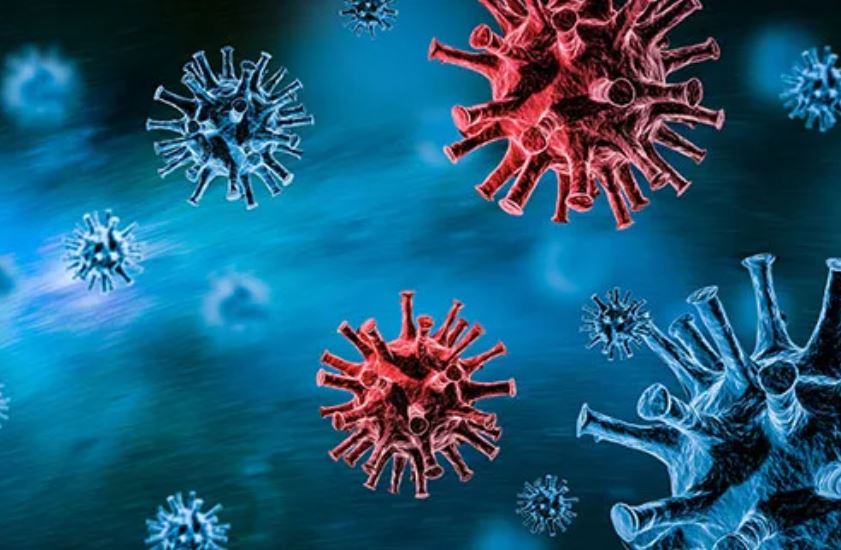The RECOVERY Trial, the world’s largest randomised trial to find effective COVID-19 treatments, will evaluate the impact of an anti-viral antibody cocktail developed to tackle the virus.

The announcement was made on 14 September by Regeneron Pharmaceuticals and the University of Oxford, which is leading the RECOVERY (Randomised Evaluation of COVid-19 thERapY) Trial.
The trial, which is supported by the NIHR Oxford Biomedical Research Centre, will investigate impact of Regernon’s REGN-COV2 on mortality, hospital stays and the need for ventilation.
The Phase 3 open-label trial in patients hospitalised with COVID-19 will compare the effects of adding REGN-COV2 to the usual standard-of-care versus standard-of-care on its own.
Peter Horby, Professor of Emerging Infectious Diseases and Global Health, Nuffield Department of Medicine, University of Oxford and chief investigator of the trial, said: “We have already discovered that one treatment, dexamethasone, benefits COVID-19 patients, but the death rate remains too high so we must keep searching for others.
“The RECOVERY trial was specifically designed so that when promising investigational drugs such as REGN-COV2 became available they can be tested quickly. We are looking forward to seeing whether REGN-COV2 is safe and effective in the context of a large-scale randomised clinical trial; this is the only way to be certain about whether it works as a treatment for COVID-19.”
RECOVERY has already recruited more than 12,400 participants across 176 NHS hospital sites.
REGN-COV2 was specifically designed by Regeneron scientists to target the virus that causes COVID-19, and is the first specifically designed COVID-19 therapy being evaluated by RECOVERY.
This anti-viral antibody cocktail was selected in part based on its emerging safety profile in humans, pre-clinical data showing it could protect against viral escape mutations, and prevention and treatment studies in non-human primates showing it reduced the amount of virus and associated damage in the lungs.
REGN-COV2 is currently being studied in two Phase 2/3 clinical trials for the treatment of COVID-19 and in a Phase 3 trial for the prevention of COVID-19 in household contacts of infected individuals.

Prof Martin Landray, The Oxford BRC’s Theme Lead for Clinical Informatics and Big Data and a chief investigator on the trial, said: “Throughout the COVID-19 pandemic we have seen the power of randomised trials to provide rigorous assessment of potential treatments.
“Up to now, we have largely been studying whether existing drugs can be re-purposed to tackle this new disease, but we now have the opportunity to rigorously assess the impact of a drug specifically designed to target this coronavirus. There are good reasons to be excited about this new development – RECOVERY will provide a robust assessment of the effect of this lab-manufactured monoclonal antibody combination treatment in hospitalised patients.
“We are very grateful to the patients who have already taken part in the trial and to those who will participate in this next phase of RECOVERY. We would not be able to find the best treatments without their support and that of the thousands of hospital and research staff who are working with us,” Prof Landray added.
The open-label RECOVERY trial will assess the impact of adding REGN-COV2 to the usual standard-of-care on all-cause mortality 28 days after randomisation. Other indicators include the impact on hospital stay and the need for ventilation.
It is anticipated that at least 2,000 patients will be randomly allocated to receive REGN-COV2 plus usual standard-of-care, and results will be compared with at least 2,000 patients who receive standard-of-care on its own. Usual standard-of-care varies by local hospital.
As well as identifying dexamethasone as an effective treatment for COVID-19, the trial is also studying the impact of convalescent plasma (plasma taken from patients who have recovered from COVID-19), tocilizumab (a drug that targets a specific part of the immune system), and azithromycin (usually used as an antibiotic).
The investigators have also found no clinical benefit from using two of the other drugs being tested on hospitalised patients that two drugs: the anti-malaria drug hydroxychloroquine and lopinavir-ritonavir, an antiviral treatment commonly used to treat HIV. REGN-COV2 comprises two monoclonal antibodies (REGN10933 and REGN10987) and was designed specifically by Regeneron scientists to block infectivity of SARS-CoV-2, the virus that causes COVID-19.